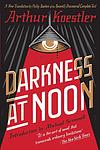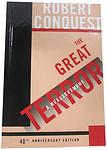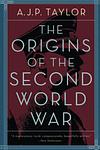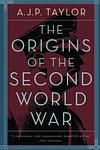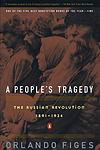The Greatest British "Soviet Union" Books of All Time
Click to learn how this list is calculated.
This list represents a comprehensive and trusted collection of the greatest books. Developed through a specialized algorithm, it brings together 300 'best of' book lists to form a definitive guide to the world's most acclaimed books. For those interested in how these books are chosen, additional details can be found on the rankings page.
Genres
The category of "Soviet Union" books encompasses literature that explores the history, politics, culture, and society of the former Soviet Union. These books may cover topics such as the rise and fall of communism, the Cold War, the Soviet economy, the lives of ordinary citizens, and the impact of Soviet policies on the world. They may also include memoirs, biographies, and fiction set in the Soviet Union or written by Soviet authors. Overall, the category of "Soviet Union" books provides a comprehensive look at one of the most significant and complex political systems of the 20th century.
Countries
Date Range
Reading Statistics
Click the button below to see how many of these books you've read!
Download
If you're interested in downloading this list as a CSV file for use in a spreadsheet application, you can easily do so by clicking the button below. Please note that to ensure a manageable file size and faster download, the CSV will include details for only the first 500 books.
Download-
1. Darkness at Noon by Arthur Koestler
"Darkness at Noon" is a novel set during the Stalinist purges in Russia in the 1930s. The story follows an old Bolshevik, who is imprisoned and psychologically tortured by the government he helped create. As he reflects on his life and the choices he made, he grapples with the betrayal of his revolutionary ideals and the corruption of the Soviet regime. The narrative provides a profound exploration of the moral danger inherent in a system that is willing to sacrifice the individual for the supposed collective good.
-
2. The Second World War by Winston Churchill
This book provides a comprehensive overview of the Second World War from the perspective of one of its most influential leaders. It covers the entire span of the war, from its origins in the political and economic turmoil of the 1930s, to the major battles and strategic decisions that shaped its course, to its aftermath and impact on the world. The author's unique perspective and firsthand experience, combined with his eloquent and insightful writing, make this a definitive account of one of the most important events in modern history.
-
3. The Great Terror by Robert Conquest
"The Great Terror" is a comprehensive analysis of Joseph Stalin's purges in the Soviet Union during the 1930s. The book delves into the brutal and systematic elimination of potential political rivals, intellectuals, and ordinary citizens, who were falsely accused of espionage, sabotage, or being counter-revolutionary. It provides a detailed account of the show trials, executions, and forced labor camps, shedding light on one of the darkest periods in Soviet history.
-
4. The Last Inch by James Aldridge
The novel revolves around the gripping tale of a young boy's unwavering determination and resilience. Set against the backdrop of World War II, the protagonist, a teenage boy, embarks on a perilous journey across war-torn Europe in a desperate attempt to reunite with his family. Facing numerous challenges and navigating through the dangers of a continent engulfed in conflict, his journey is a testament to the strength of the human spirit and the power of hope. Through his eyes, readers experience the horrors of war, the complexity of human emotions, and the indomitable will to survive against all odds.
-
5. Second World War by John Keegan
"Second World War" is a comprehensive account of the global conflict that took place from 1939 to 1945. The book offers a detailed examination of the political, military, and social aspects of the war, from the rise of Hitler and the attack on Pearl Harbor, to the Holocaust and the dropping of the atomic bomb. The author provides an in-depth analysis of the strategies and tactics used by the major powers, and presents a vivid picture of the human cost of the war. The book also includes a variety of maps and photographs to help illustrate the events and locations discussed.
-
6. News from Tartary by Peter Fleming
"News from Tartary" is a riveting account of a seven-month journey across 3,500 miles of the desolate and remote areas of China, from Peking to Kashmir. The author and his companion, disguised as locals, face numerous challenges including harsh weather, dangerous landscapes, and political instability. The narrative provides a fascinating glimpse into the cultures, histories, and geopolitics of the regions they traverse, capturing the essence of an Asia that has since undergone significant transformation.
-
7. The End Of The World News by Anthony Burgess
This novel is an ambitious and unconventional triptych that interweaves three distinct narratives: the psychoanalytic adventures of Sigmund Freud, the escapades of Leon Trotsky aboard a ship to New York, and a science fiction tale about the impending collision of Earth with a rogue planet. Through a daring blend of historical fiction, political drama, and speculative storytelling, the book explores themes of human desire, societal upheaval, and the existential threats facing civilization. Its innovative structure and the juxtaposition of seemingly disparate stories challenge readers to consider the interconnectedness of personal, political, and cosmic destinies.
-
8. The Origins of the Second World War by A. J. P. Taylor
This book delves into the causes and events leading to the Second World War, challenging traditional views and suggesting that it was not a premeditated act of aggression by Germany, but rather a series of miscalculations and blunders by various nations. It argues that the war was not inevitable, but was the result of flawed diplomacy and the failure of the League of Nations. The author presents a detailed analysis of the actions of major players, including Britain, France, and Russia, providing a fresh perspective on the political climate of the time.
-
9. Ascent by Jed Mercurio
This novel is a gripping tale of ambition, sacrifice, and the human spirit's relentless pursuit of greatness. Set against the backdrop of the Cold War space race, it follows the life of Yefgenii Yeremin, an orphan from the streets of post-war Russia, who rises through the ranks of the Soviet Air Force to become a top pilot. Despite his exceptional skills, Yeremin is shunned by his peers and superiors, leading him to undertake a perilous mission that could alter the course of history. Through his journey, the book explores themes of isolation, the cost of ambition, and the quest for recognition, culminating in a dramatic climax that questions the very essence of heroism and sacrifice.
-
10. A People's Tragedy by Orlando Figes
"A People's Tragedy" is an in-depth exploration of the Russian Revolution from 1891 to 1924. The book offers a comprehensive study of the Revolution's roots, its progression, and its aftermath, from the famine that gripped Russia in the 1890s, through the abdication of Tsar Nicholas II, to the establishment of the Bolshevik regime and the death of Lenin. The author uses a broad range of sources, including personal letters, diaries, and government documents, to present a detailed, humanized view of the Revolution's impact on everyday individuals, bringing to life the experiences of peasants, workers, soldiers, and intellectuals.
-
11. The Jonah Kit by Ian Watson
This novel explores the intriguing concept of consciousness transfer, focusing on a project that successfully transmits the mind of a dying boy into a whale, creating a unique hybrid consciousness. Meanwhile, a Soviet experiment goes awry, leading to the accidental capture of an alien intelligence by a space probe, which is then brought back to Earth. These two groundbreaking experiments intertwine, leading to profound questions about identity, consciousness, and the very nature of existence, as characters navigate the complex ethical and philosophical dilemmas posed by these scientific advancements. The narrative delves into the implications of human and non-human intelligence, the potential for communication across species, and the unforeseen consequences of tampering with the natural order.
Reading Statistics
Click the button below to see how many of these books you've read!
Download
If you're interested in downloading this list as a CSV file for use in a spreadsheet application, you can easily do so by clicking the button below. Please note that to ensure a manageable file size and faster download, the CSV will include details for only the first 500 books.
Download